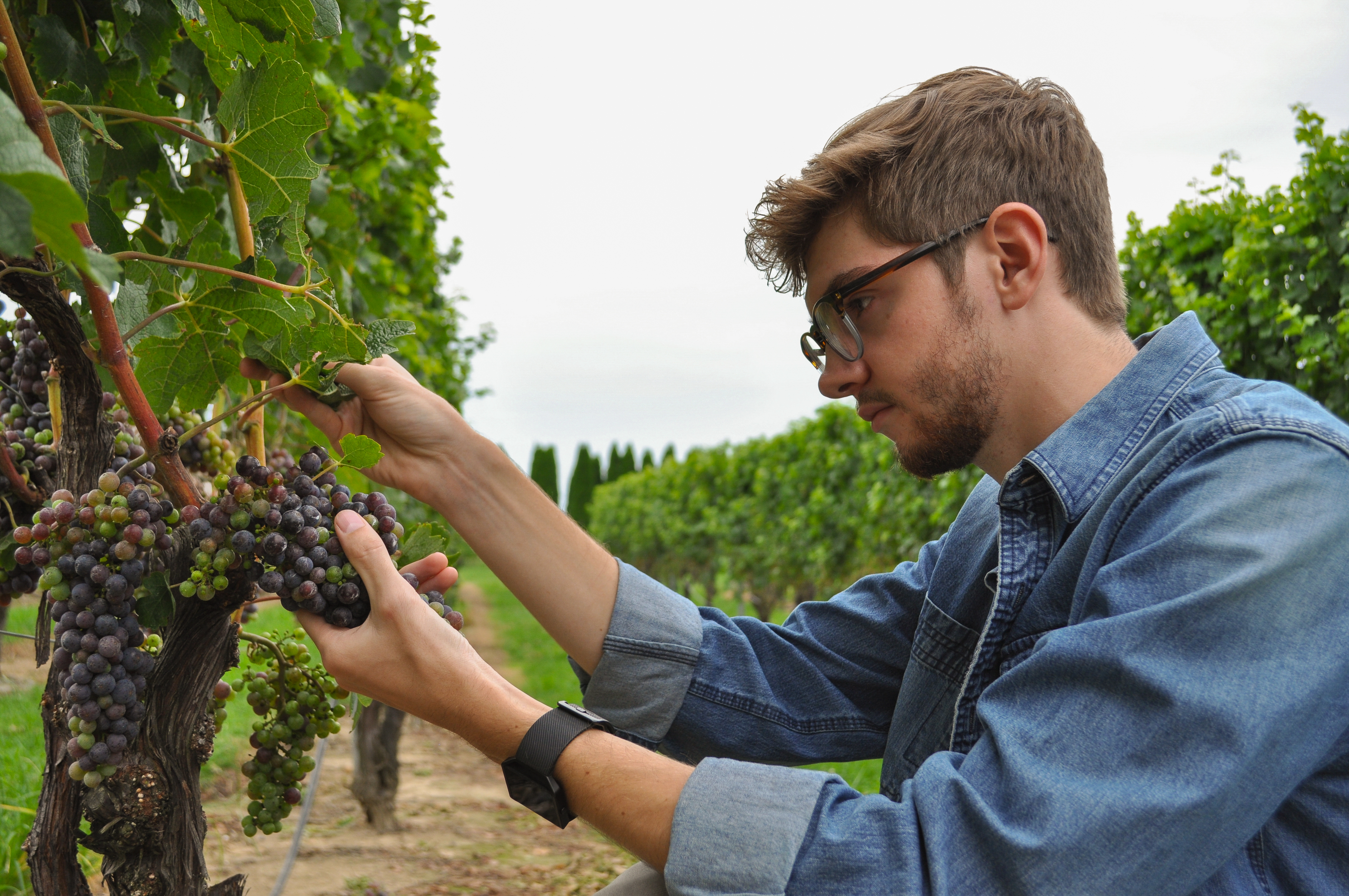I felt helpless as I watched the emails flutter into my inbox, one by one, over the course of the spring semester. First, the spring break trip to Belfast for my honors interdisciplinary seminar was cancelled. Soon after, my summer research plans fell through and the course I was supposed to design and teach, a seminar for first-year students interested in psychology (see FIGS), was postponed until Fall 2021. As the COVID-19 pandemic worsened, I mourned the (comparatively small) loss of my plans for the spring, summer, and fall. My disappointment and frustrations were reaching a tipping point, and I knew that I needed to reflect on what I wanted—and what I needed—to move forward. I could no longer remain trapped behind my computer on the dining room table. I needed to be productive, use my hands to create, and re-connect with nature.
It was then that I reached out to Julianne Donnini, a local winemaker and the co-founder of Auburn Road Vineyards. My days were soon occupied with soothing walks through acres of grapevines, tending to each plant to ensure that a copious amount of high-quality fruit would be produced by the end of the season. Depending on the weather and needs of the grapes, some days were more taxing than others, with tasks including: adjusting wires to encourage the grapevines to grow straight, removing a percentage of leaves to provide the grapes with optimal sunlight exposure, ridding the plants of excess or subpar growth, and pruning diseased clusters of grapes. My responsibilities were not limited to the fields, however, as I played a role in a number of other steps in the winemaking process, including “topping” barrels of wine and bottling the wine itself.
For me, the vineyard provided a crucial opportunity for a deeper reflection of life and helped to restore my sense of efficacy. Yes, this summer I did become well-acquainted with viticulture and developed a greater appreciation for the science and art of winemaking. And it was incredibly rewarding to—quite literally—see the fruits of my labor. But, more importantly, I was able to escape the incessant stream of confusion, frustration, and feelings of helplessness that had been drowning me for months. For the first time in what had felt like eons, I was able to truly connect with myself. In those fields, I could more clearly hear my thoughts and worries: How can I better support my Black friends, peers, and community members? What do I want to do in my lifetime to achieve a sense of professional and personal fulfillment? Often, I pensively evaluated my educational and career goals or tuned into Podcasts (such as 1619, Intersectionality Matters, Code Switch, and Hidden Brain) to engage in critical analyses of our social structures. Other times, I simply let go of the reins and let my imagination run freely. Through these processes, I came to better understand my emotions and my thoughts: I understood their roots and their catalysts; I understood why I felt how I felt and why I worried what I worried; I understood with greater clarity what I wanted and needed; I understood what I needed to do moving forward. The irony of pruning the grapevines was not lost on me as I removed the diseased, non-productive, and unwanted aspects of the crop. I was doing the same for myself.
As I prepare for our remote Fall 2020 semester, I leave behind the vineyard with a new definition of resilience. I believe that all too often we understand resilience to be best exemplified by the unforgiving Eurocentric conviction that we must quickly pick ourselves back up when we are knocked down. Too often we assume that being resilient means that we keep charging forward—headstrong—until the goal we want to achieve is finally attained one way or another. As I have learned, resilience has a much more flexible nature than that popularized notion of relentless perseverance implies. To employ emotionally intelligent skills and cater to our psychological needs is resilience. To listen to one’s gut feelings, re-evaluate the current situation, and go in an entirely different—perhaps unconventional—direction is resilience. Resilience is not strictly defined in the paradigm of accolades and achievements; it is emotional, and it is psychological. When the spring semester ended, I chose to listen to myself and my emotions. Now, I am entering the fall semester with a greater drive to make a difference than ever before, and I am ready to take on what has yet to come.
